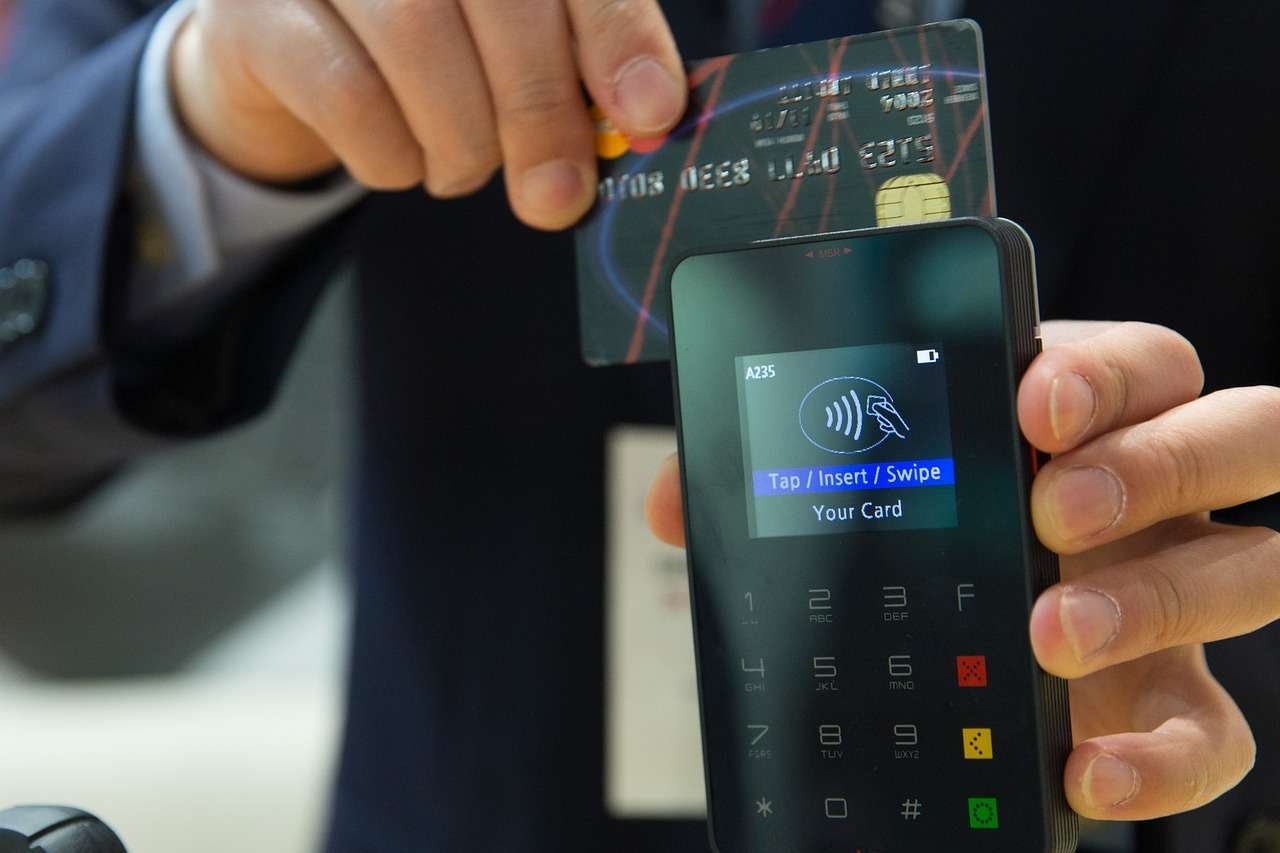
In a world where FinTech is making its mark, many new industries and sectors are springing up.
One of these is the Payment Services Providers industry, as well as the Electronic Money Institutes which have gained a significant foothold on the island of Malta.
But what are they? How do they work? How are they regulated and how do they relate to the incredibly successful world of iGaming? In this article, we will give you the information to be able to answer those questions.
Let us read on to find out more:
- What are PSP and EMI?
- The connection between iGaming and PSP
- MFSA Regulations
- Future of payment services
What are PSP and EMI?

Ok, first things first, what is a Payment Services Provider (PSP)? A PSP is a platform that offers shops the ability to process payments via the internet. The types of electronic payments that are included under the PSPs include credit cards, direct debits, and real-time bank transfers.
Typically, a PSP will use a specific software as a service model to create a single payment gateway that connects all merchants with all available payment methods.
A PSP can create a connection between acquiring banks and payment networks and in most cases, the PSP will manage the technical connection as well as the relationships with the external system and the corresponding bank accounts.
This means that the merchant can be less dependent on a particular financial institution as well as be free from having to spend time establishing these connections directly.
By using a PSP, a company can enjoy lower fees as it often forms a part of a bank deal and it also makes international business much more accessible.
A full-service PSP can also offer its clients risk management services in the cases of bank and card-based payments, as well as transaction payment matching, fund remittance, reporting, and even fraud protection.
Another service commonly offered is multi-currency functionality and services. There are even some PSPs that provide services which enable their clients to process next-generation methods such as cash payments, wallets, pre-paid cards and vouchers, and even e-check processing. As such, the term “PSP” is much broader than a payment gateway.
At the time of writing, there are over 900 payment providers in the world with the vast majority operating from Europe and North America. Malta is a particularly popular EU jurisdiction for the operations and set up of Payment Service Providers.
An EMI refers to an Electronic Money Institution which is defined as a financial institution which has been licensed to issue electronic money. Electronic money is something that can be used to make payments to parties other than the issuer that holds it.
It must be stored on an electronic carrier, or remotely in a centralised accounting system. An EMI is not a bank, but yet it is still their business to receive funds and then to issue e-money exchange, e.g. as a balance in an electronic wallet. A good example would be an electronic gift voucher that is loaded with a specific amount of value that can be used as a form of payment at various points of sale over the internet.
When we refer to receiving funds, it is important to note that the purchaser of the electronic money must compensate its issuer in exchange for the electronic money. Therefore, a loyalty scheme provider doesn’t engage in an activity that can be classified as an electronic money institution.
Malta is home to many FinTech companies, a high number of which are EMIs or PSPs. This is due in part to the large number of iGaming, or online gaming companies that operate in and from the country.
The Connection Between iGaming and PSP

The iGaming industry has dominated Malta’s economy for over the last ten years, and it accounts for approximately 2% of its annual GDP. With hundreds of online casinos and related companies operating in the country, support providing suppliers are flourishing, but what is the connection between iGaming and PSP?
Any company that operates an online casino, online slots, or even any kind of online game, needs a payment provider. To use an online casino, one has to typically sign up, log in and then deposit funds into the online account of the applicable service provider.
Usua payment methods include credit card, debit card, bank transfer, or providers such as Skrill, Neteller, or even Revolut. This is where a PSP comes into the equation.
In such a highly regulated sector, security, confidence and privacy are essential, so ensuring that you use a highly reputable payment provider to process your client’s payments is extremely important. It is also an industry where there is a certain lack of trust, therefore providing a secure payment gateway reassures clients and adds another layer of confidence to the operations.
Most of these payment providers can offer their clients a solution that will offer a one-time integration with access to every standard payment method on the market as well as supporting a range of currencies.
At the very least, iGaming clients would need to be able to facilitate payments and withdrawals in Euros, Dollars, and Pounds, via credit and debit card, bank transfer (SEPA and SWIFT), and ideally wallets such as Neteller and Skrill.
MFSA Regulations
Malta is something of a destination of choice for those looking to set up PSPs, and this is due to some advantages such as inviting fiscal incentives that are granted to not just the company, but to the shareholders and highly qualified expatriates that choose to relocate there.
Other benefits include passporting rights and the fact that the FinTech, iGaming, and e-commerce industry is thriving which provides lots of business opportunities for PSP providers.
The Financial Institutions Act regulates all financial institutions except banks. The Malta Financial Services Authority (MFSA) has also issued some rules that are collectively known as Financial Institution Rules, and they govern the way that a range of financial company’s work.
According to the regulations laid down by the MFSA and pertaining to PSPs, the following activities are permissible:
- Services enabling cash to be placed on a payment account as well as all the operations required for operating a payment account;
- Services allowing cash withdrawals from a payment account as well as all the operations required for operating a payment account;
- Issuing and/or acquiring of payment instruments;
- Money remittance;
- Execution of payment transactions where means of any telecommunication transmits the consent of the payer to a payment transaction, digital or IT device and the payment is made to the telecommunication, IT system or network operator, acting solely as an intermediary on behalf of the payment service user and the supplier of the goods and services.
- Execution of payment transactions where the funds are covered by a credit line for a payment service user:
- Implementation of direct debits, including one-off direct debits;
- Execution of payment transactions through a payment card or a similar device;
- Execution of credit transfers, including standing orders.
- Execution of payment transactions, including transfers of funds on a payment account with the user’s payment service provider or with another payment service provider:
- Execution of direct debits, including one-off direct debits;
- Execution of payment transactions through a payment card or a similar device;
- Execution of credit transfers, including standing orders.
Furthermore, a PSP can also execute payment transactions, foreign exchange services, safekeeping activities, storage, and processing of data, the operation of payment systems, hold payment accounts that are used exclusively for transactions, and grant credit about specific services.
When it comes to regulations that govern the operation of EMIs in Malta, it is the third schedule of the Financial Institutions Act that applies. In Malta, an EMI has been authorised by the MFSA to issue electronic money, be it cryptocurrencies or fiat currencies.
Under the pertaining regulations, and EMI in Malta is allowed to engage in a variety of activities other than just issuing electronic money, and these include payment services.
Other activities include:
- Services that enable cash to be placed into a payment account as well as all of the operations required for operating a payment account.
- Services that enable cash withdrawals from a payment account as well as all the operations required for operating a payment account.
- The execution of payment transactions including the transfers of funds on payment accounts with the user’s payment service provider or with another payment provider, e.g. direct debits, card payments, credit transfers, standing orders.
- Execution of payment transactions where the funds are covered by a credit line for a payment service user.
- Issuing and/or acquiring payment instruments
- Money remittance
- The execution of payment transactions where the consent of the payer is transmitted using telecommunication and the payment is made to the telecommunication network provider acting solely as an intermediary on behalf of the payment service user.
Future of Payment Services
It seems that blockchain-based payment platforms are going to be a very prominent part of the PSP future. It is likely that they will take over from bank-based transactions and will remove the need for any intermediary or third party to be involved in executing transactions.
The blockchain is set to revolutionise the way that we transact and do business entirely, and the payment services sector is no exception.
Many believe that we are only just beginning to scratch the surface of blockchains potential in regards to payments and that there is still a lot left to discover.
As of last year, the market cap of Bitcoin surpassed that of PayPal and such huge growth is largely thanks to the level of security, the transaction speed, and the convenience offered by blockchain tech. It is expected that the popularity of blockchain based payment services providers and even electronic money institutes will continue to grow and that we will see a shift away from traditional models.
This doesn’t mean that we will necessarily see a decline in the use of fiat currencies, but instead, we will see an increase in the use of the blockchain platform as a way of facilitating payments.
In a world where cross-border business is becoming the norm, the lure of instant, free, or at the very least- low-cost payments will prove too much to resist. We must also take into account the decreasing trust in banks and governments and the fact that many individuals are drawn to the fact that blockchain allows anonymous transactions without the need for an intermediary or third party.
While Malta leads the way for iGaming and FinTech it as about to add blockchain and cryptocurrency to its list of success stories and as such PSPs and EMIs will be made to adapt to support and work with this exciting and disruptive new industry.
One thing is for sure, and that is Malta is going to be a true hotbed of innovation when it comes to PSPs, EMIs and blockchain technology. With a savvy and technologically minded government and a regulatory framework that supports and protects those in these industries, we can expect all future developments to come from here.



![Bitcoin Buyer Review of Official Website [2022] bitcoin buyer review featured image](https://bitemycoin.com/wp-content/uploads/2022/04/bitcoin-buyer-review-featured-218x150.jpg)
![Bitcoin Digital | Official Website Review [2022] bitcoin digital review featured](https://bitemycoin.com/wp-content/uploads/2022/04/bitcoin-digital-featured-218x150.jpg)



